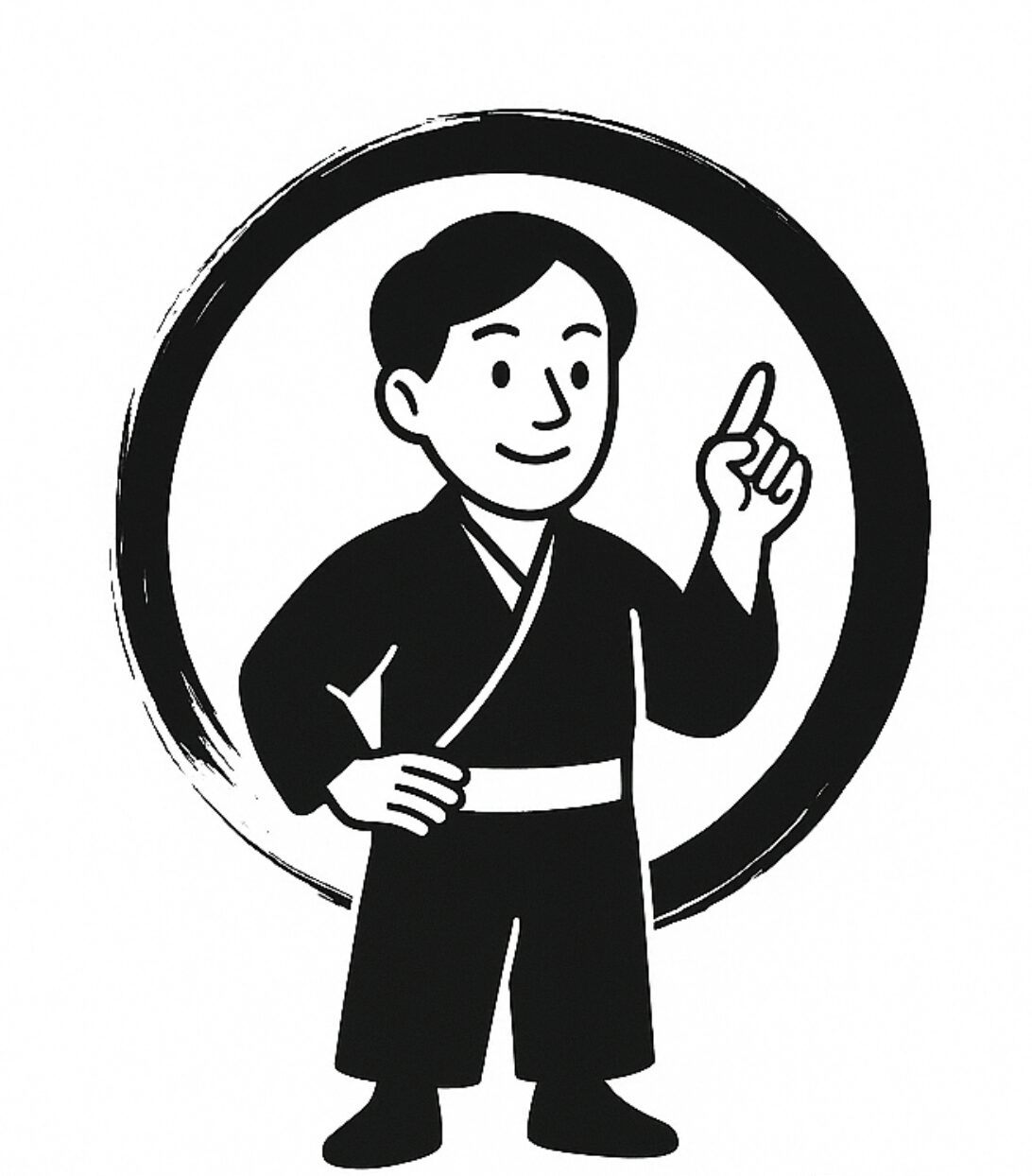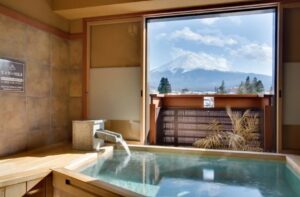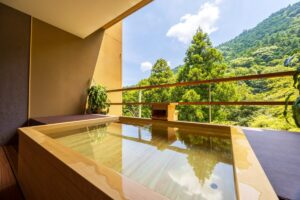Why Your Accommodation Choice is More Than Just a Bed
When planning your first or even second trip to Japan, deciding where to stay can be overwhelming.
Should you choose a traditional ryokan for an authentic cultural experience or a modern hotel for convenience and comfort?
Your choice isn’t just about a place to sleep—it will shape your memories and your connection with Japan.
 Flo
Flo“I’ve seen travelers leave raving about their ryokan experience—or regretting missing it. Choosing wisely really matters!”
Quick Self-Check: Should You Stay in a Ryokan or Hotel?
Would you enjoy sleeping on a futon in a tatami room with minimalist Japanese décor?
What is a Ryokan?
A Cultural Experience Like No Other
A ryokan is a traditional Japanese inn offering a deeply immersive experience into Japan’s customs and hospitality. Ryokan can range from modest, family-run guesthouses to luxurious retreats with private open-air onsen baths.
What to Expect in a Ryokan:
- Tatami Rooms & Futon Beds: Sleep on futons laid on straw mats, with minimal yet elegant décor.
- Kaiseki Cuisine: Multi-course meals featuring fresh, local, seasonal ingredients prepared with meticulous care.
- Yukata & Rituals: Change into a yukata robe upon arrival, sip green tea, and follow centuries-old customs.
- Onsen Baths: Many ryokan, especially in hot spring towns like Hakone or Beppu, feature communal or private onsen baths.
- Omotenashi: Experience the heartfelt Japanese hospitality that makes ryokan stays unique.



“Even after decades in Japan, I still feel a sense of magic the moment I step onto tatami and slip into a yukata—it’s a timeless experience.”
What is a Hotel in Japan?
Comfort and Convenience in the Heart of the City
Japanese hotels offer Western-style comfort and practicality, perfect for travelers who want an efficient base for exploring cities.
What to Expect in a Hotel:
- Room Style: Western beds, en-suite bathrooms, modern amenities.
- Location: Near train stations, airports, shopping, and nightlife.
- Services: 24-hour check-in, laundry services, and business facilities.
- Breakfast Options: Western or Japanese buffets, or none—giving you freedom to explore local cafés.
- Range: From affordable business hotels to luxury brands.



“For city-hopping with a JR Pass, you’ll appreciate how hotels near train stations save time and energy—especially with big suitcases!”
Comparing Ryokan and Hotels: Key Differences
| Feature | Ryokan | Hotel |
|---|---|---|
| Atmosphere | Traditional, tranquil, immersive | Modern, practical, cosmopolitan |
| Meals | Kaiseki dinner & breakfast often included | Breakfast buffet or none |
| Beds | Futon on tatami mats | Western beds |
| Cultural Touch | High—tea ceremony, yukata, tatami | Low—focused on convenience |
| Price | ¥15,000–¥60,000+ per person/night (meals incl.) | ¥5,000–¥50,000+/room/night |
| Location | Scenic onsen towns, countryside | City centers, near stations |
| Flexibility | Less flexible schedules, fixed mealtimes | Highly flexible, come/go freely |
Who Should Choose a Ryokan?
A ryokan is perfect
- Long for a deep cultural experience
- Are celebrating a honeymoon or special occasion
- Are excited for traditional multi-course dinners
- Want to soak in onsen baths surrounded by nature
- Prefer a slower, more intimate experience



“Some of my happiest memories with friends from abroad are watching them try on yukata for the first time—it’s a wonderful icebreaker!”
Who Should Choose a Hotel?
A hotel will suit you
- Plan to move quickly between cities
- Need a flexible schedule for early trains or flights
- Prefer Western beds for comfort or accessibility
- Are budget-conscious and need affordable options
- Like the predictability of international hotel chains
The Real Magic of Ryokan: What Makes It Special
Ryokan stays are about experiencing a different pace of life.
Time slows down as you savor each course of dinner, listen to the quiet of the night, and soak in mineral-rich baths.



“When I worked in Tokyo, escaping to a ryokan was my way of resetting. There’s nothing like dozing off on a futon after a good soak.”
Important Things to Know Before Booking a Ryokan
While ryokan are wonderful, they’re not like hotels. Here are essential things to know so you’re not caught off guard:
1. Strict Mealtimes
Dinner and breakfast are usually served at set times—often dinner around 6–7 PM. Arriving late could mean missing your meal with no refund. Double-check your arrival time so you don’t miss the highlight of your stay!



“I’ve seen many travelers shocked to find dinner service stops at 7 PM sharp—confirm your check-in time carefully!”
2. Early Check-Out
Ryokan typically ask guests to check out by 10 AM. It might feel early if you’re used to hotels, but it’s a great excuse to start exploring Japan early in the day.
3. Futon Sleeping
Futons on tatami floors can feel firm if you’re not used to them. If you have back issues or want extra comfort, politely ask the staff if they can add an extra futon layer—they’ll often be happy to help.
4. Shared Facilities
Some traditional ryokan have shared toilets or baths. If you prefer a private bathroom, check room details when booking—many modern ryokan offer ensuite options.
5. Etiquette
When using the onsen, wash thoroughly before getting in, don’t let towels touch the bathwater, and tie up long hair. This helps keep the bath clean and comfortable for everyone.



“Even Japanese people sometimes slip up on onsen etiquette—don’t be shy to ask staff or other bathers if you’re unsure.”
6. Tattoos
Some ryokan, especially in older onsen towns, still don’t accept guests with tattoos. But many modern ryokan do welcome tattooed travelers or offer private baths you can reserve—just check ahead of time to avoid disappointment.
7. Limited English
In family-run or rural ryokan, staff may speak limited English. Bringing a translation app or learning a few simple Japanese phrases like “Arigato” (thank you) goes a long way and will be appreciated by your hosts.
8. Dietary Restrictions
Kaiseki meals are a highlight of ryokan stays but can include seasonal seafood or ingredients not suited to every diet. Be sure to inform the ryokan in advance—some are happy to adapt meals, but not all can accommodate every need.



“Every friend who’s done even one ryokan night tells me it became the highlight of their trip—don’t skip it if you can!”
My Favorite Ryokan Towns for First-Timers
- Hakone (near Tokyo): Easy access, views of Mt. Fuji, rich onsen culture.
- Kinosaki Onsen (Hyogo): Walk the lantern-lit streets in yukata, try seven public baths.
- Izu Peninsula (Shizuoka): Gorgeous ocean views, seafood kaiseki, coastal hot springs.
- Gero Onsen (Gifu): One of Japan’s three great onsen towns, riverside outdoor baths.
- Beppu (Oita): Variety of unique baths—mud, sand, and steam—plus easy Kyushu travel connections.
Where to Book Your Perfect Stay
For secure, English-friendly bookings with reliable customer support, check out these trusted options:
Klook: Ryokan & Hotel Bookings
Easily compare ryokan and hotels, enjoy flexible cancellations, and get exclusive deals. Klook’s English interface and 24/7 support make it perfect for travelers booking from abroad.
Trip.com: Wide Selection of Ryokan and Hotels
Find everything from affordable hotels to luxury ryokan in one place. Trip.com offers competitive prices, frequent discounts, and English-language booking options—ideal for planning your Japan adventure stress-free.
Final Travel Tips
- Book early, especially during cherry blossom or autumn foliage seasons—popular ryokan fill up months in advance.
- Combine both stays for the best experience: hotels in cities + a ryokan in an onsen town.
- Respect ryokan customs, and don’t hesitate to ask staff for help—they’re always happy to guide you.
A Traveler Who Loves Both
I always stay in both hotels and ryokan when I visit Japan. For me, a ryokan is all about relaxing and really tasting traditional Japan—it’s super traditional, but at the same time incredibly calming.
On the other hand, hotels are everywhere in the world. I use them all the time, especially when I need something practical and familiar. They’re perfect for city stays, but nothing beats the unique feeling of a ryokan when I want to unwind and soak up the Japanese atmosphere.





Comments